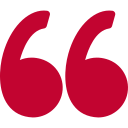24 October 2023
A round table “Artificial intelligence in education: what to prepare for and how to prepare?” was held at the Graduate School of Management of St. Petersburg State University. The researchers from St. Petersburg State University, Moscow State Linguistic University, Far Eastern Federal University and corporate universities discussed the prospects and possible consequences of students and teachers using technologies such as ChatGPT.

Students are already actively using neural networks to prepare various types of work. It is not prohibited and does not fall under the category of plagiarism, but it causes heated discussions in the teaching community. One of the main problems is that the level of development of artificial intelligence is not yet sufficient for the information received from AI to be trusted. St. Petersburg State University doctoral student Victoria Firsanova teaches students in her courses how to use technology correctly.

“Together with the students, we came up with a research topic and tried to work on it using artificial intelligence,” said Victoria Firsanova. — First, we generated a plan, analyzed the strengths and weaknesses of this plan, and with the help of AI, generated a bibliography — here I showed which items from the bibliography are fake and which are real. Of course, sometimes ChatGPT hits the mark. But only if you are an expert in some field, you can quickly figure out what is true and what is not. The students and I went through a fact check, generated an essay, and I showed how it can be checked on ZeroGPT - this is a service that determines whether the text was created using artificial intelligence or written by a person. We have made sure that the work of AI is easily defined.”
One of the main risks that arises when using AI is that students will receive and assimilate unreliable knowledge. Experts are confident that strict legislative regulation of the artificial intelligence sector and the introduction of clear ethical standards are necessary. Otherwise, the consequences can be sad.

“Often, when they talk about the benefits of using artificial intelligence and its implementation in various fields of activity including education, we are talking about increasing productivity and reducing risks associated with the human factor. But the risks are not decreasing in reality. If a teacher is too lazy to double-check the information that artificial intelligence conveys to students, we will get very unpleasant consequences when current students grow up to make responsible decisions,” says Arsen Lazursky, director of the Center for the Development of Professional and Life Skills at Moscow State Linguistic University, translator, teacher.
The loss of soft skills—the ability to communicate, argue, and defend one’s opinion—is another problem that worries AI fans. It is more pleasant and convenient to communicate with the program than with a real person: it will not scold or ridicule. Also, skeptics talk about the possible digital stupidity of a generation that consumes a lot of information without analyzing it. The development of technology, on the contrary, places higher demands on people, rather than freeing them from work.

“ChatGPT has already caused a whole problem in the publishing industry because people started sending publishers a bunch of nonsense generated by the neural network. Because of this, the demands on professionals are increasing. We have to offer something that is fundamentally different from what the machine does. The same goes for students. They still dream that AI will help them write their thesis. But several years will pass, and the requirements will increase: becoming an educated person will become even more difficult, because you will need to prove how you differ from artificial intelligence,” expressed the opinion of Sergey Lukashkin, director of the REC “Digital Technologies in Education” at GSOM SPbU.
According to the discussion participants, there is a need to change teaching approaches now in order to strengthen the cognitive abilities and critical thinking of students in response to the risks of digital dullness and loss of skills to formulate one’s own thoughts cogently. Some teachers openly allow the use of ChatGPT, but require students to complete the assignment as an exploration of the possibilities of AI in a particular area.

“Interacting with AI resembles a typical student-teacher interaction. The student says: please tell me how to solve this equation. This interaction is monological. What if we rebuild it? Then, the role of the teacher is clearly defined — he is not just a side element of this structure, but a facilitator. At the same time, we will consider artificial intelligence as a catalyst, as part of the dialogue space,” says Alina Karelina, Deputy Head of Department of Professionally Oriented Translation at FEFU.
The round table took place within the framework of the anniversary X Scientific Conference Economy and Management Conference of GSOM SPbU.
PHOTO GALLERY
При использовании данного сайта Вы подтверждаете свое согласие на использование ВШМ СПбГУ cookie файлов. С подробной информацией Вы можете ознакомиться, перейдя по ссылке.